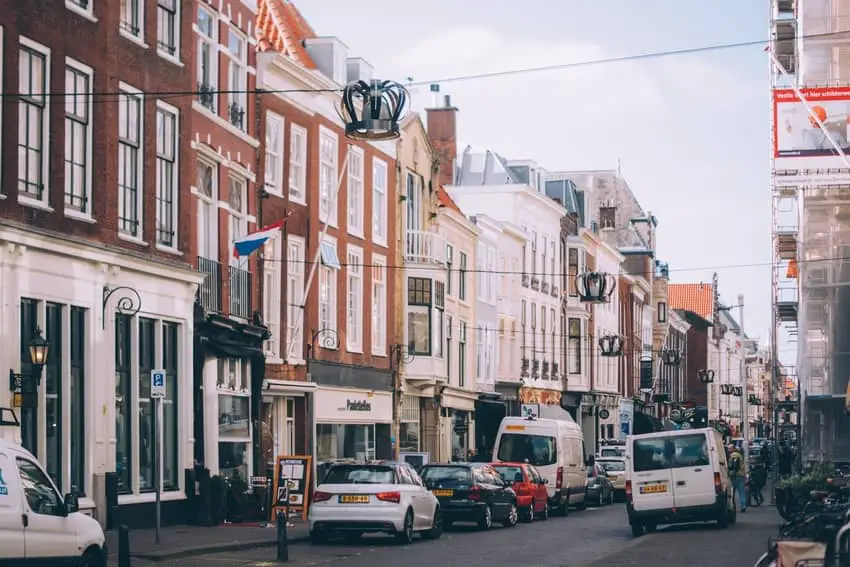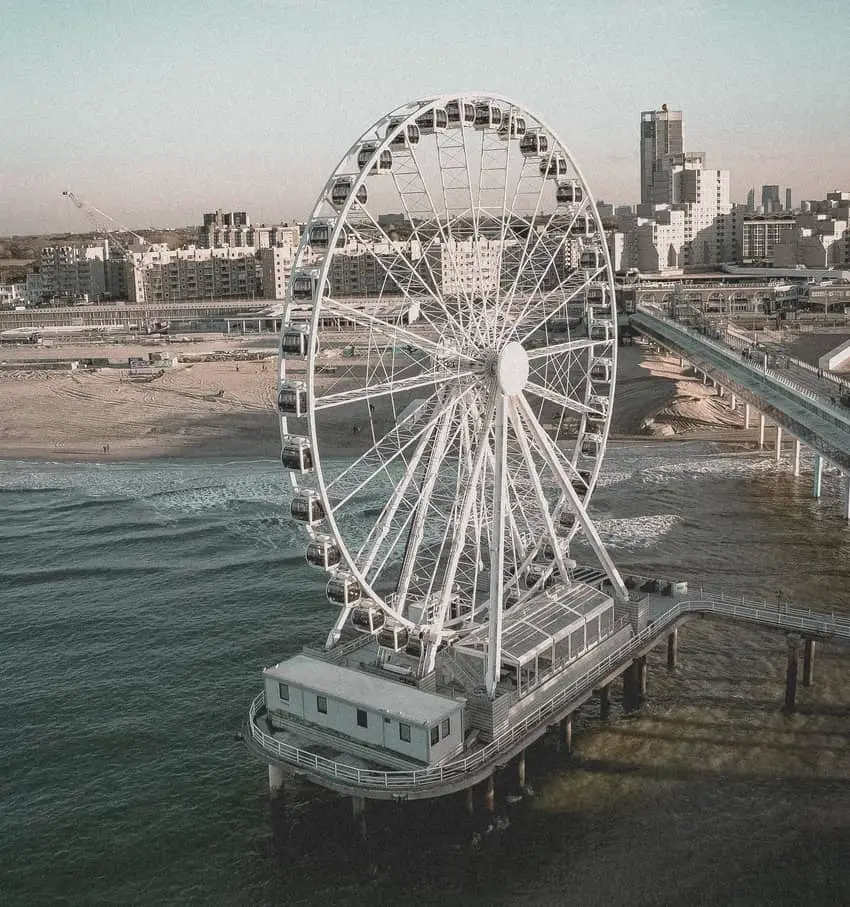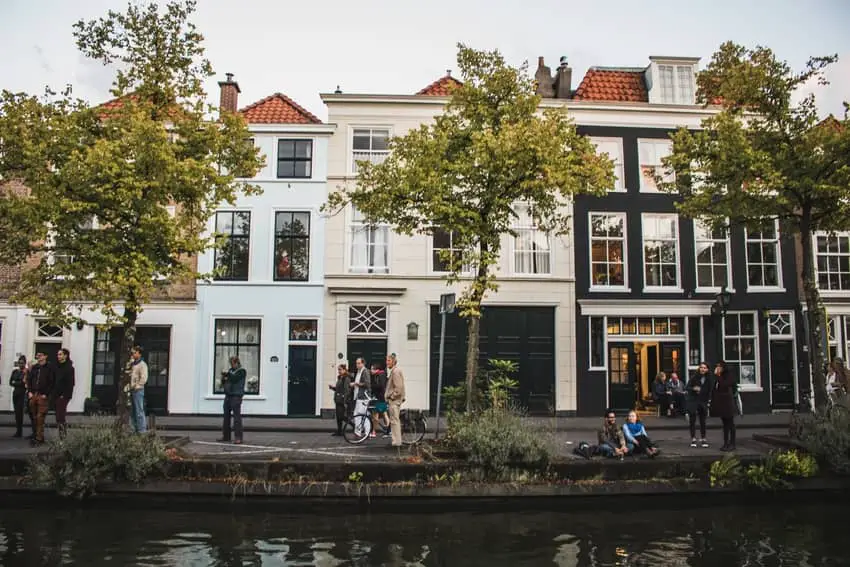Since the first time you step in this country, you can feel that the Netherlands is the safest country for you to live in and to go visit. This also includes bigger cities, as well as small ones, since the biggest issues you will face are pickpocketing, small crimes and these are very sporadic. This is also the case of the Hague.
The Hague is one of the safest cities in Europe and of course, in the Netherlands. However, since we are talking about a big city, there will always be small crimes, pickpocketing and other uncomfortable situation. This is circumstantial and the Hague can be considered a very safe destination.

If you are planning on travelling solo, with your family or with your partner to the Netherlands, anywhere you go, including the Hague will be considered safe. The Netherlands is one of the safest countries in the world, something you will feel as soon as you arrive. If you want to know more about it and know the specific details about the city, what to do to avoid any potentially difficult situation and so on, keep reading this article!
Safe in The Hague
If you have ever been to the Netherlands, you would know that it not only is but it also feels like one of the safest countries in the world. Even though the Hague is one of the biggest cities in the country, it is not an exception, you will also feel safe there.
Even though it is commonly known that the bigger the city, the more problems there will be, the potential problems we are talking about are nothing compare to many other countries in the world. Not so long ago I wrote an article about the safeness in Rotterdam and to talk about it I used a safety guide from Safety Around, where they describe all the possible dangerous situations. This is the situation in the Hague:
- General Risk: according to their ranking, the Netherlands is the 16th safest country out of 162 that constitute the study. This is a great position, which means pity crimes happen every now and then like it is normal having tourists and many people commuting to work and working every day.
- Pickpocketing Risk: It is low but it is there. According to Numbeo the chances of this happening is 20%, which is considered to be a low percentage. When it happens, it tends to be in public transportation, rush hours, in very touristic spots where people stop to take photos or relax without being conscious of their belongings, etc. It is not common to be attacked or have any type of violence and this being a Dutch city it means that there is equally as many or more chances to get back your belongings if you leave them on top of a bench, a table, inside a restaurant or shop. So, as far as my experience goes, if one is careful there is no reason to worry.
- Assault Risk: It is also very, very low. This means that the chances of a proper assault happening while you are in the are almost one in a million. Any time of fire weapon is completely illegal in the Netherland, unlike other countries. This means that the chances of anything happening are low. If there is anything potentially dangerous it would be inside an embassy or any of the institutions but also chances are low.
- Scams Risk: in bigger and more touristic cities such as Amsterdam, the chances of some sort of scams, such as having to pay too much for a taxi ride or something similar are higher than in the Hague. In any case, they are still low. It is unlikely to find people offering you illegal replicas of expensive products, fake tours and other things because this is very well-controlled by the local police.
- Transport Risk: the way public transportation works in the Netherlands makes it one of my favourites in the whole world: everything public transportation-related is controlled by the Dutch Government, in every single city and town of the country. The risk of anything besides being a little delay happening is almost nonexistent. On the public transportation official websites, 9292.nl or NS.nl, you will be able to find all the useful information about updated schedules, location and how to get wherever you want, in the Hague and everywhere else in the Netherlands.
- Natural Disaster Risk: besides being underwater and the water being able to break in and destroy half of the country, nothing else is likely to happen. Jokes aside, there is no real risk, not because of the water nor because of anything. There is no risk of earthquakes, no risk of natural disasters… yet a lot of risk of getting wet under the rain and flying away with the wind!
- Women Travelling Alone Risk: I am a woman and I have been to the Hague, alone and in company many times in my life. The whole Netherlands, including The Hague, is very very safe for women travelling solo. There is no real risk and one can feel that it is ok to be alone, not intimidating, etc. Chances of anything bad happening to you if you are alone are literally everywhere, but they are not higher and it won’t feel like that. Of course, I wouldn’t recommend for you to walk along Scheweningen alone and night or going to big festivals all alone and having to take the train very late at night, but that doesn’t mean anything will happen to you.

So, what else could be useful to know when travelling to The Hague to make your trip an even safer one? Keep reading!
Travel Safe: The Hague
There are many aspects of your trip that you can control, consider and plan in order to make your trip a smoother and safer one.
Drugs: is it a problem?
Considering that we are talking about the Netherlands, are drugs an issue in The Hague? Well, the answer is not really. In general, this is a very controversial topic for the whole country. The idea of legalising drugs is to have the consume, purchase and sell under control, which should give us all a feeling of safeness.
What is the real perception? You don’t have anything to worry about when it comes to drugs. If you are not paying attention to it you will neer even notice it.
Weather: is The Hague safe?
As I was mentioning before, the weather is not likely to be a problem since there are not many natural disasters. Of course, it is always good to have travel insurance in case either at the departure or at the destination there is any sort of weather issues.
Travel Insurance: Is it Worth Getting one to Travel to The Hague?
As I was saying before if you can afford to get travel insurance it is definitely a good idea. Imagine that you are travelling with a new laptop, you have the new iPhone and it either falls, it gets pickpocketed or you forget it on the plane. What then?
That is the least it could happen and you will thank having insurance to cover that. Besides, the health care in the Netherlands is private, which means that even if you are a European citizen you will have to pay for your dental care, emergency doctor, ambulance, etc. If you want to read more about how the health system works in the Netherlands, HERE there is an article.
What Else Should I take into Account?
The Hague is the area in the Netherlands with the highest concentration of embassies, NGOs and Governmental Organizations. This means that if there is any legal or political problem in the whole country, it will affect there.

Of course, normally nothing happens and people live safe there but there is this chance of possible terrorist attacks going on. The Netherlands, in general, is a country considered to be in the medium rank of possible terrorist attacks happening there. This doesn’t mean that it will happen to you or that it happens every day, but in comparison to other countries, the likeliness is high.
To Sum Up
To leave this article on a higher note I will have to say that the feeling of safeness I have had in the Netherlands in general and in The Hague, in particular, is hard to compare to any other country in the world. It is a very multicultural and expose place yet a very safe environment, calm, organised and perfectly fine for the best holidays and to spend a day trip getting to know all the history, political institutions and the beach of The Hague.